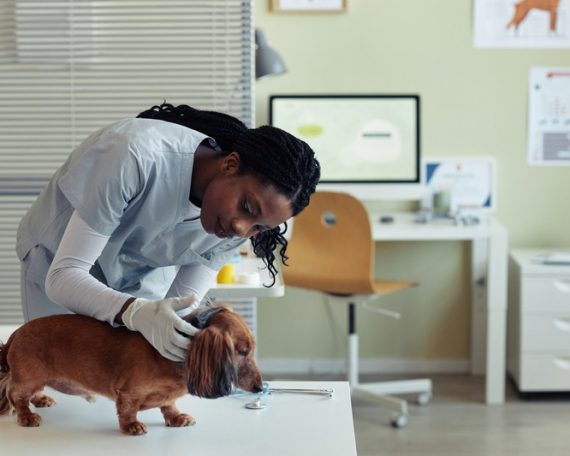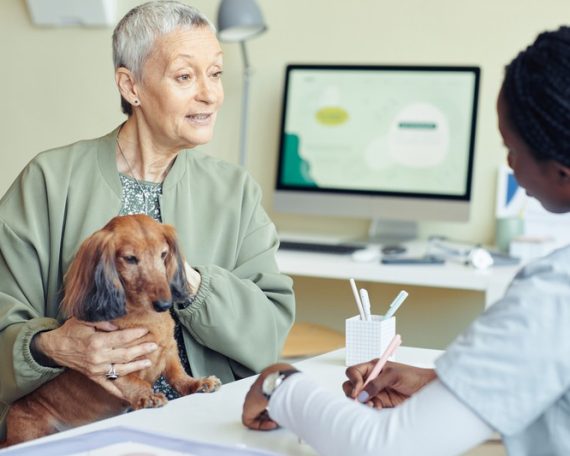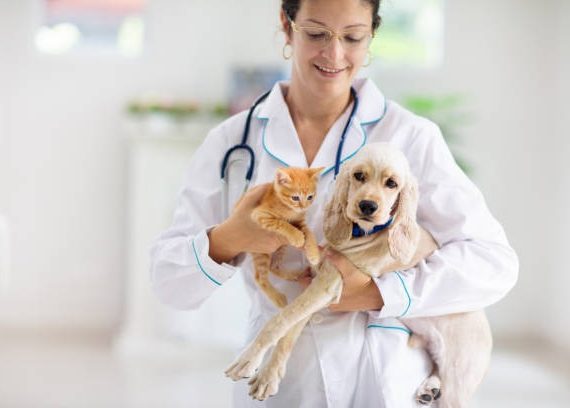How Can I Help My Pet Recover After a Vet Visit?
Visits to the vet can be stressful for pets, and recovery can be both a physical and emotional process. Knowing the steps to take post-visit can speed up your pet’s recovery and ensure they feel comfortable and loved during their healing time.
Know Your Pet’s Specific Needs
Post-visit instructions vary depending on the procedure or treatment your pet received. Make sure you understand what is expected before leaving the vet. Ask questions if you’re unsure about medication dosages, side effects, or activity restrictions.
Create a Comfortable Resting Area
After any stressful event, including a vet visit, pets usually need a quiet space to recover. A comfortable bed, away from high traffic areas, helps your pet relax and recuperate. Stress can delay healing, so a peaceful environment is key.
Monitor for Pain or Discomfort
As a pet owner, it’s crucial to observe your pet carefully for any signs that they might be in pain or uncomfortable. Changes in the way your pet acts or moves can be a signal that they are hurting. Pets can be good at hiding their pain, so being alert to small changes is key.
Recognizing Changes in Behavior
Pets show pain in different ways. You might notice that your pet is quieter than usual, sleeping more, or not wanting to play. Some pets might become grumpy or not want to be touched in certain spots. These can all be hints that your pet doesn’t feel well.
-
Avoidance of Activity: If your normally active pet is not running around or playing as much, they might be experiencing discomfort. It may be due to soreness, stiffness, or another issue that needs checking out.
-
Differences in Eating Habits: Pain can also affect your pet’s appetite. If they’re not eating like usual, or if they seem to have trouble chewing, these could be signs of discomfort or pain in their mouth or elsewhere in the body.
Always take these changes seriously. Even if there’s no clear injury or illness, pain can be coming from inside, and only a vet can help find the cause.
Being Observant Can Help Your Pet
Your attentiveness to your pet’s comfort and behavior is crucial for their well-being. If you notice something off about your pet, don’t wait to see if it gets better on its own. Bring it up with your vet. It might be something that can be easily fixed, or it might need more treatment.
Keep Them Hydrated and Well-Fed
Proper nutrition and hydration are essential for healing. Offer your pet their favorite foods and plenty of water. If they’re not interested in eating, consult your vet for advice.
Administer Medications Properly
Follow the vet’s instructions for any medications. Giving the right dose at the right time is imperative for recovery. Use treats or pill pockets if your pet is reluctant to take their medicine.
Limit Physical Activity
Most pets will need to restrict their activity after a vet visit. No jumping, running, or rough play might be necessary, depending on the treatment they received. Make sure everyone in the household understands these restrictions.
Attend Follow-Up Appointments
Once your pet has seen the vet, it’s important to go back for any additional check-ups that the vet says are needed. These follow-up appointments are there to keep an eye on how your pet is doing after they have started any new treatments or medicines.
Why Follow-Up Appointments Matter
Think of follow-up appointments as a progress report for your pet’s health. During these visits, the vet can see if the medicines are working or if the treatment needs to be changed. It’s all about making sure your pet gets better in the best way possible.
-
Monitoring Healing: Follow-up visits give the vet a chance to make sure that your pet is healing as expected. If there’s something that’s not going right, the vet can spot it and figure out what to do.
-
Adjusting Treatments: Sometimes, a pet’s treatment plan needs changes. Maybe the medicine isn’t working, or it’s causing side effects. The follow-up is where your vet can make adjustments so your pet can heal without more problems.
Skipping these appointments can risk your pet’s health getting worse or slow down their recovery. It’s tempting to think everything is fine if your pet seems better, but without a professional check, you can’t be sure.
Implement Advanced Recovery Solutions
For pets needing an extra recovery boost, veterinary laser therapy in Rochester, NY, maybe a great option. This non-invasive treatment can reduce pain and inflammation, promoting faster healing.
Supportive Care
-
Physical aids like slings or ramps may be needed for pets with mobility issues.
-
Consider special diets or supplements for additional nutritional support during recovery.
Helping your pet recover from a vet visit primarily involves attentiveness and love. By providing a comfortable environment, monitoring their needs, and seeking professional assistance when necessary, your pet will be back to their best self in no time.
Stay Informed on Preventive Health Measures
Knowledge of preventive health measures can minimize the number of vet visits your pet needs. Consider staying informed on dog & cat vaccinations in Rochester, NY, as an example of steps you can take to protect your pet’s health.
Maintain Regular Veterinary Check-Ups
Regular cat and dog routine exams help catch potential health issues before they become serious, which can lead to better outcomes and simpler recovery processes after vet visits. To learn more about the importance of routine exams and services available, check out websites like https://www.stoneypointevet.com/site/veterinary-services-rochester/cat-dog-routine-exams.
To End
Helping your pet recover after a visit to the vet requires patience, tender care, and attention to their specific needs. With a comfortable space, careful monitoring, and regular health maintenance, you’ll ensure your pet remains happy and healthy.











